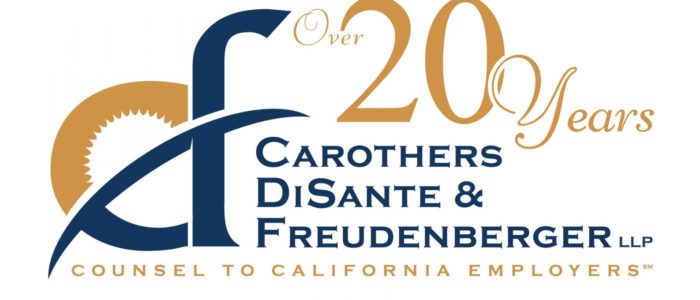Legal News: Courts Help Brewers Protect Their Recipes and Techniques from Employee Theft
The following article provided by Carothers DiSante & Freudenberger LLP to assist brewers navigate legal concerns.
California’s craft brewers may celebrate National Beer Day with more comfort that Courts will help them protect their recipes, brewing processes and other trade secret information against rogue employees who take such information which will enhance the craft brewer’s market value and protect the integrity of their products.
A dispute “brewing” in California since 2013 came to a head on March 20, 2019 when the Ninth Circuit Court of Appeals upheld the lower court’s decision that Anheuser-Busch could prosecute its civil claim against a former employee accused of taking recipes and other trade secret information and providing that information to lawyers to support a different class action lawsuit against Anheuser-Busch. Anheuser-Busch v. Clark, No. 17-15591 (9th Cir., not for publication, March 20, 2019).
Anheuser-Busch required its employees to enter into agreements to protect its confidential information, return all confidential information at termination of employment, not disclose the confidential information and, following termination, upon request, certify that the employee had not disclosed or used any confidential information. In 2013, a former employee, Clark, convinced one of his former co-workers to send him an email containing a page of information containing Anheuser-Busch’s recipe and other information, and then sent that information to the plaintiff’s lawyers in a class action case that was filed immediately thereafter. Clark also refused to provide the requested certification.
Clark filed an Anti-SLAPP motion to try to defeat the claims. An Anti-SLAPP lawsuit is supposed to prevent meritless litigation designed to chill first amendment rights. If a defendant establishes that the challenged case arises from protected activity, the plaintiff, here Anheuser-Busch, must meet the challenge of demonstrating a probability of prevailing on the merits. In 2015, the Ninth Circuit, in this same case concluded that the lawsuit was based on Clark’s actions in furtherance of protected activity. So, the lower court conducted a lengthy analysis to conclude that Anheuser-Busch demonstrated that its recipes and methodologies were subject to trade secret protection, used reasonable means to protect its secrets, that Clark misappropriated the trade secret information and breached his contractual obligations to Anheuser-Busch. And, on this “round” to the Ninth Circuit, it agreed that Anheuser-Busch demonstrated a likelihood of success.
While many California craft brewers are not of the size of Anheuser-Busch, they should take all available steps to protect their recipes and brewing techniques, not only for future usage, but to protect and enhance their brand name and potential sale value. So, before finishing your beer, be sure that you have consulted with counsel to ensure you have updated your employment confidentiality agreements and practices to protect against the theft of your recipes, techniques, methods and other trade secret information that differentiates your unique techniques and taste from other brewers.
Carothers DiSante & Freudenberger LLP advises and defends California craft breweries in employment-related matters. With offices throughout the state, we have your craft brewery covered



